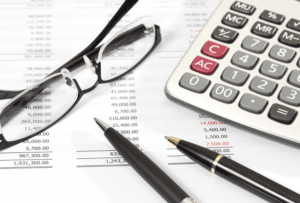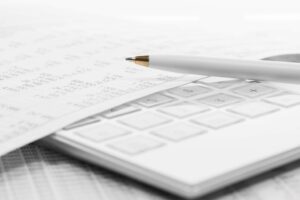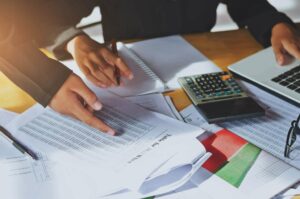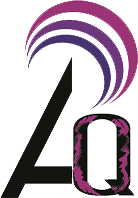Keeping Books in Order: Complete Sole Trader Bookkeeping

This can help you keep accurate records, ensure compliance with tax regulations, and reduce the risk of making errors on your tax return. Keeping track of invoices and receipts is essential for accurate bookkeeping. You should retain records https://www.bookstime.com/articles/is-it-hard-to-be-a-bookkeeper of all invoices and receipts, including sales receipts, expenses receipts, and bank statements.

Manage my preferences

Choosing the https://x.com/BooksTimeInc right software can ensure your records are always up to date. You may also need to keep other records such as any money you are owed but have not received, your year-end bank balances, or any money you’ve taken out for your own use. HMRC may ask for a detailed breakdown, including receipts, so knowing what to keep track of is essential. As a sole trader, you need to register for VAT if your turnover is more than the current threshold, which is £85,000. When you buy anything for the business, including a coffee ‘on expenses’, always request the VAT receipt—some shops don’t issue a receipt by default. If you regularly get the train to go and see your clients, always keep the tickets in a separate part of your bag, or buy them online before you go so you have an email record.

TrulySmall Accounting
- It’s been around a few years now, but up until now it related to VAT.
- Bookkeeping is the day-to-day processing of your financial transactions.
- By mastering this skill, you can make informed decisions about how to allocate resources and plan for future growth in your business.
- Complete control – A sole trader has complete control over all business decisions and operations as the sole owner.
- This involves keeping accurate records of your income and expenses, reporting your earnings to HMRC, and paying any tax that you owe.
- You can also identify any errors quickly and take steps to correct them.
- You must register by the 5th of October to submit a self-assessment return for the tax year.
This could involve following up on disputed charges, returns, or refunds. Some software options will come with a pre-set chart of accounts templates, while others may allow you to customise your own. Whatever system you choose, make sure to review and update it regularly so that it accurately reflects your business transactions throughout the year. Bookkeeping has always had a reputation for being a difficult task that is tough to deal with.
Women-Led Businesses You Should Be Paying Attention To
These transactions can include sales, expenses, and purchases made using personal or business accounts. As a sole trader, it is essential to keep track of all monetary transactions and maintain records that can be used for tax purposes or audits. It’s been around a few years now, but up until now it related to VAT. From April , instead of filing an annual self-assessment, you’ll need to use MTD compliant accounting software to keep track of your financial records and submit quarterly income tax updates to HMRC. Bookkeeping is the day-to-day processing of your financial transactions.
Cryptocurrency Tax

Breakdown expense contributions and identify problem spending areas for next year’s improvements. This simple step will ensure that you’re in a good position to start the next financial year running. Double check expenses and income are coded to appropriate reporting classifications for all transactions over the year. Manufacturers are very different to consultancies and dumping everything into a ‘Miscellaneous’ bucket won’t cut it for final compliance or auditing purposes either.
Managing Finances
As a sole trader, it’s essential to keep accurate records of your business transactions. Bookkeeping is the process of keeping track of the money your business makes and spends. It involves recording all financial transactions, such as sales, purchases, expenses, and payments. Bookkeeping is an essential aspect of running a successful business, regardless of its size or nature. As a sole trader, you are responsible for managing your business’s finances, including keeping track of your income and expenses, invoicing clients, and paying taxes. Effective bookkeeping helps you stay on top of your finances, make informed business decisions, and ensure compliance with legal and regulatory requirements.
We will customize a plan to fit your budget and management style.
It has various income and expense tracking features as well as invoicing and reporting capabilities. QuickBooks allows users to connect their bank accounts so transactions are automatically imported, making it easier to reconcile accounts. As a sole trader, you do not have to open a separate bank account if you split your personal income and expenses to the business’s transactions. But, it is recommended that you open a business bank account; most major banks offer business banking. This will help you separate your personal and business finances for accounting purposes, making tracking expenses and income more straightforward.
Our picks for the best self-employed accounting software
- Forecasting your cash flow and future tax liabilities is essential for any sole trader.
- As a sole trader, your income is determined by your invoices and any inward payments you receive into your account due to the service you provide or products sold.
- One thing we do know is that (as things stand) eligible sole traders will need to start keeping digital records and making quarterly updates from April 2026 onwards.
- Managing multiple income sources and splitting bank statement lines for processing will make your life much easier.
- This should be a daily process, to ensure all the transactions from the day are logged correctly.
- Recognise any invoices to customers that have been raised but not yet paid.
- When it comes to setting up your sole trader bookkeeping system, the first decision is whether you will use software or manual methods.
In this guide, we will explore everything sole trader bookkeeping you need to know about sole trader bookkeeping. Bookkeeping is one of those administrative tasks that may seem tedious, but it’s vital if you want to run your sole trader business effectively. Filing a self-assessment tax return is a legal requirement if your business income exceeds £1,000 annually.
